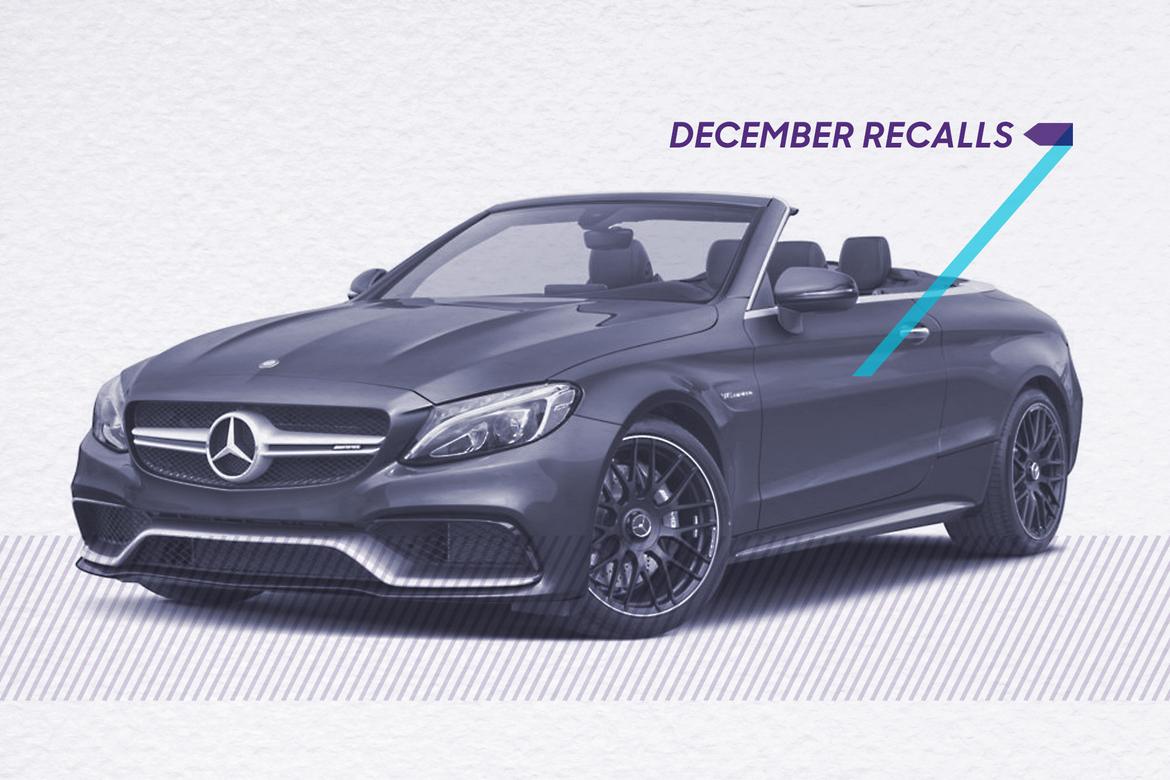Nobody likes when things don't work the way they're supposed to, especially when it's the two-ton hunk of metal sitting in your driveway. When a problem becomes a complaint becomes an investigation becomes a recall, automakers try hard to get your attention so you can get it fixed for free. It's not just junk mail — it's a letter that could potentially save your life.
Thing is, recalls happen all the time. Some are relatively minor. Others are, well, the Takata airbag inflator crisis. Each one is important no matter the month, but it can be hard to keep up with knowing if your vehicle is involved.
Not feeling up to speed? Not to worry. Below are the biggest recalls we covered from November in terms of the number of vehicles affected. For more coverage, check out our Recalls page, and for a comprehensive list of recalls that includes all things road-going, check out the National Highway Traffic Safety Administration's page here.
1. 104,000 Mercedes-Benz, Mercedes-AMG Cars, SUVs, Hybrids
To say Mercedes-Benz had a bad month for recalls would be an understatement. Of all the recalls we covered in December, three of the five largest were from the German luxury brand. This one was far and away the leader, with some 104,000 GLC-Class SUVs and C-Class sedans, coupes, convertibles and plug-in hybrids affected. The issue regards the passenger-side frontal airbag, whose status may not display correctly, leading to an injury if the airbag is deactivated during a crash. Dealers need to update some software in the audio head unit to solve the problem.
2. 89,700 2008-19 Lexus LX 570, Toyota Land Cruiser
Owners of these old-school-style SUVs (Lexus is Toyota's luxury brand) will want to check the month's other big recall, which involves the front-passenger occupant classification system and its seat belt tension sensor. Akin to the airbag status light in Mercedes' recall, Toyota's sensor could malfunction over time, causing the airbag warning light and passenger airbag "Off" indicator to illuminate. The front passenger airbag, knee airbag and passenger-seat-mounted side airbag may also deactivate. Save your fellow occupants from worry (and yourself from liability) by getting this fixed — though, last we checked in mid-December, a remedy was still under development.
3. 6,100 2017-18 Alfa Romeo Giulia
It's thankfully a pretty steep drop-off in vehicle count to the third-largest recall of the month, which is for Alfa Romeo's Giulia sports sedan. This issue involves only those cars equipped with the 280-horsepower four-cylinder (that is, not the Quadrifoglio) and all-wheel drive. The brake fluid line may contact a coolant hose clamp, potentially causing brake fluid to leak onto the exhaust and start a fire. The fix involves dealers installing a bracket on the brake fluid line, or, if damage exists to that line, replacing it entirely.
4. 6,100 2015-19 Mercedes-Benz, Mercedes-AMG Cars
Affecting roughly the same number of vehicles as the Alfa Romeo recall was another one from Mercedes-Benz, this time affecting rear-drive versions of the C-Class, E-Class and CLS-Class (so, no 4Matic versions). A locknut in the steering rack may break under high load, possibly causing the steering to stick in one position, which is bad news for obvious reasons. The fix seems simple, even if the work involved may not be: Dealers will replace the steering rack.
5. 5,400 Mercedes-Benz, Mercedes-AMG and Mercedes-Maybach Cars
The other recall from Stuttgart involves the full range of model-year 2019 Mercedes products, from your standard Benz to the performance AMG division and ultra-swank Maybach line. The problem is comparatively pedestrian: A correctly fastened seat belt may be detected as unlatched, preventing the belt pretensioner from activating during a crash. For dealers as well as for owners, the solution is simple: Replace the seat belt buckles.
Source: Read Full Article

